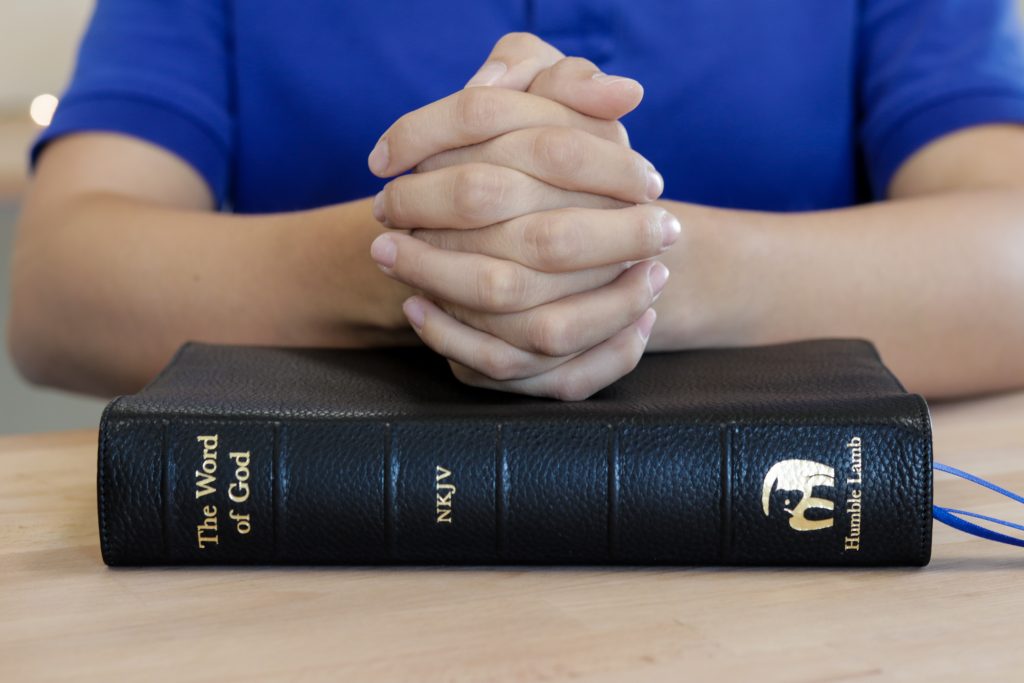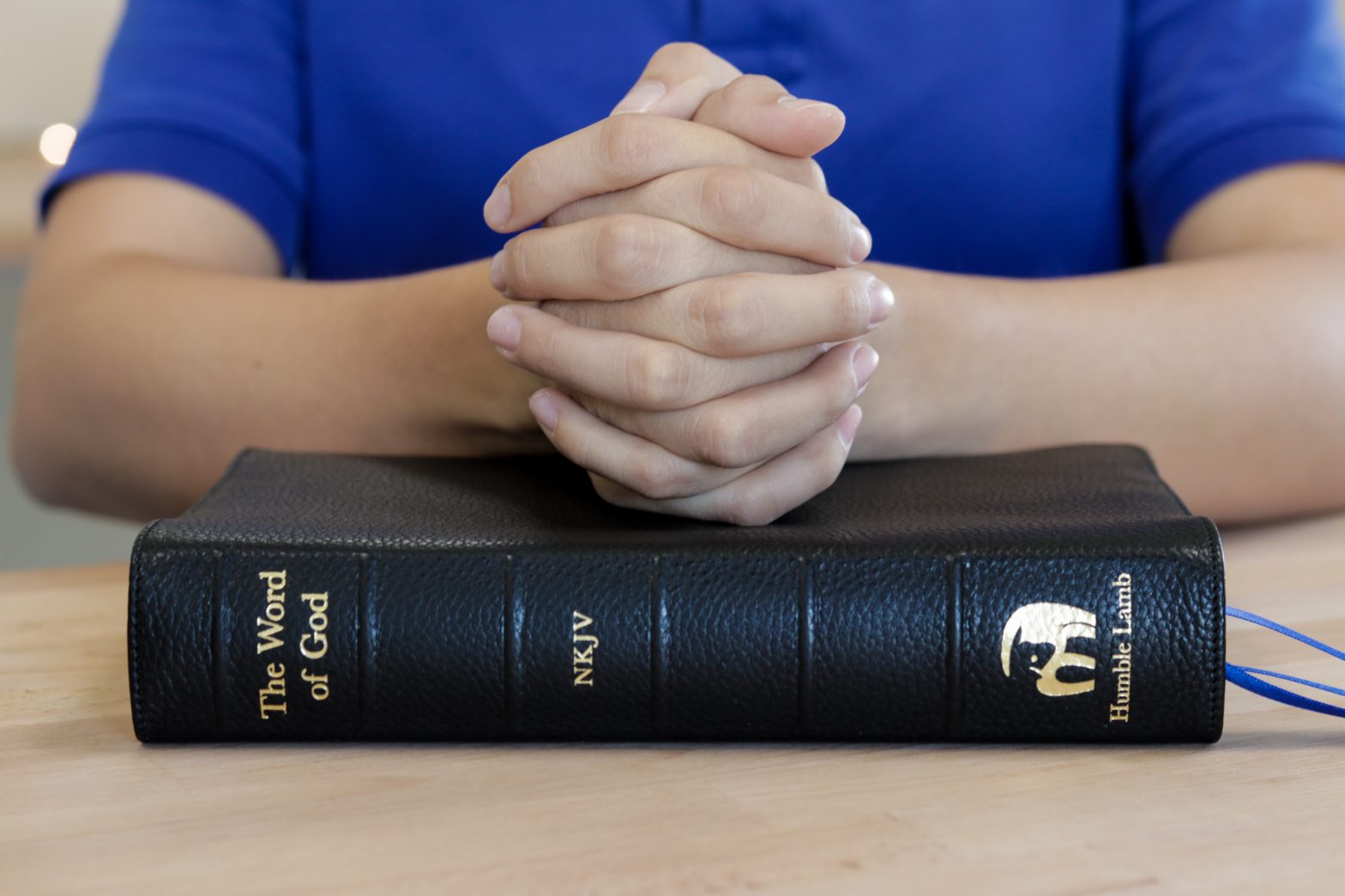
The history of prayer as it meets us here reflects various stages of experience and revelation.
1. Patriarchal Period
Prayer is (1) colloquy with God ( e.g. Genesis 15:1-2; Genesis 15:7-8; Genesis 17:15-16; Genesis 17:22 ); (2) intercession ( e.g. Genesis 17:16; Genesis 18:23 ff.); (3) personal supplication ( e.g. Genesis 15:2; Genesis 32:11; Genesis 43:14 ); (4) asseveration ( e.g. Genesis 14:22 ); (5) vow ( e.g. Genesis 28:20).
2. The Law ( i.e. as codified and expanded in later times)
The reticence as to prayer might suggest that it is voluntary and not patient of legislation; but in OT it is less a general duty than a prophetic privilege (especially re intercession); cf. Genesis 20:7. Note, however, the formula for thanksgiving ( Deuteronomy 26:5-11 ), assertion of obedience ( Deuteronomy 26:13-14 , ct. [Note: t. contrast.] NT), supplication ( Deuteronomy 26:16 ), expiation ( Deuteronomy 21:7-8 ).
3. Moses to Judges
(1) Moses pre-eminently a man of prayer and an intercessor ( e.g. Exodus 8:12; Exodus 8:30; Exodus 32:11-13; Exodus 32:32 , cf. Jeremiah 15:1 ): colloquy with God ( Exodus 3:1-22; Exodus 4:1-31; Exodus 5:22; Exodus 6:1; Exodus 6:10; Exodus 6:12; Exodus 6:28-30 , Deuteronomy 3:23-25 ), appeal in crises ( Exodus 5:22 , Numbers 11:11 ), prophetic blessing ( Deuteronomy 33:6-11 );
(2) Joshua’s prayer after defeat ( Joshua 7:7-9 ), and in battle ( Joshua 10:14 );
(3) Gideon’s colloquy ( Judges 6:11-24 );
(4) Israelites’ frequent cry for help ( Judges 3:9; Judges 3:15; Judges 6:6 etc.).
4. Kingdom Period
(1) Samuel, like Moses, an intercessor ( 1 Samuel 7:5-6; 1Sa 7:9; 1 Samuel 8:6; 1 Samuel 8:10; 1Sa 8:21; 1 Samuel 12:23; 1 Samuel 15:11 ): colloquy ( 1 Samuel 16:1-3; cf. 1 Samuel 3:10-11 );
(2) David : apart from the Psalms, with which his connexion is dubious, the following prayers may be noted, especially the last: for guidance ( 1 Samuel 23:2; 1 Samuel 30:8 [consulting ephod]), on behalf of child ( 2 Samuel 12:18 ), prayer of asseveration ( 1 Samuel 24:12-15; 1 Samuel 25:22 [a threat]), confession ( 2 Samuel 24:17 ), adoration, etc. ( 2 Samuel 7:18-29 );
(3) Solomon’s prayer for wisdom ( 1 Kings 3:6 ff.; note the elaborate intercession attributed to him at dedication of Temple, 1 Kings 8:22-53 , where (ct. [Note: t. contrast.] 1 Kings 8:63 ) sacrifice is not mentioned! The Temple is a house of prayer);
(4) Elijah’s intercession ( 1 Kings 18:36-37 ), colloquy ( 1 Kings 19:9-11 ), prayer before miracle ( 1 Kings 17:20-21 ), so also Elisha ( 2 Kings 4:33; 2 Kings 6:17 );
(5) Hezekiah prays in national crisis ( 2 Kings 19:15 ) and in illness ( 2 Kings 20:3 ); note his assertion of righteousness.
5. The Prophets.
Intercession in attitude, action, word, characterizes the prophets (much more than the priests, but cf. Joel 2:17 ), whether the earlier prophets, or those whose writings are extant. The reason lay in the prophet’s Divine call, his vision of the Divine will (so a ‘seer’), and his forthtelling of the Divine message. Hence comes prayerful expectancy ( e.g. Jeremiah 42:4 ), in the spirit of Habakkuk 2:1; and intercession to avert disaster ( e.g. Amos 7:2-3; Amos 7:5-6 , Isaiah 63:9-17 , and vividly Jeremiah 14:15 [where observe the colloquy of persistent intercession not withstanding Divine discouragement]), combined with prayer in view of personal difficulty ( e.g. Jeremiah 20:7-13 ).
6. Exile and Return.
In this period prayer looms large, owing to the cessation of sacrificial worship and the realization of chastisement. Accordingly confession and a humble sense of dependence are prominent. The following passages should be studied: Isaiah 63:7 to Isaiah 64:12 , Ezra 9:5-15 , Nehemiah 1:4-11; Nehemiah 9:5-38 (cf. retrospective Psalms, e.g. 106), Daniel 9:4-19 . Further, note the personal prayer-habit of Jewish leaders ( Daniel 6:1-28 , Ezra 8:21-23 ). Nehemiah’s prayer is often ejaculatory ( Nehemiah 2:4; Nehemiah 4:4 ), and sometimes betrays self-complacency ( Nehemiah 5:13; Nehemiah 13:14; Nehemiah 13:22 ).
7. Psalms, Proverbs, Job.
1). Psalms
The Book of ‘Praises’ might be appropriately called also the Book of ‘Prayers.’ (Five only are so described in title: Psalms 17:1-15; Psalms 86:1-17; Psalms 90:1-17; Psalms 102:1-28; Psalms 142:1-7 , but cf. Psalms 72:20 , Habakkuk 3:1 .)
(1) Throughout the Psalms, prayer whether of the poet as an individual or as representing the nation is specially an outpouring artless and impulsive of varied experiences, needs, desires. Hence typical psalms exhibit transitions of thought and alternation of mood ( e.g. Psalms 6:7-10; Psalms 42:1-11; Psalms 69:20; Psalms 69:27; Psalms 69:30; Psalms 77:9-11; Psalms 109:23-30 ).
(2) The blessing sought is oftener material or external, like rescue from trouble or chastisement. Not seldom, however, there is a more spiritual aim: in Psalms 51:1-19 pardon is sought for its own sake, not to avert punishment, and Psalms 119:1-176 is notable for repeated requests for inward enlightenment and quickening. The trend of the whole collection is indicated by its ready and natural adaptation to NT ideals of prayer. In estimating psalms which express vindictive and imprecatory sentiments, we should note that they breathe abhorrence of evil, and are not the utterance of private malice. Even on the lowest view they would illustrate the human element in the Scriptures, and the progressive nature of revelation, throwing into vivid relief the Gospel temper and teaching. The propriety of their regular use in public worship need not be discussed here.
2) Proverbs
Note the suggestive allusion to the character of a suppliant ( Proverbs 15:6; Proverbs 15:29; Proverbs 28:9; cf. Psalms 145:18-19 , Jdt 8:31 , Sir 35:16 , James 5:10 ), and Agur’s prayer ( Proverbs 30:7-9 ).
3) Job
In this dramatic poem Job’s objections to his friends’ criticisms often take the form of daring expostulation directly addressed to God ( e.g. especially ch. 10). As a ‘cry in the dark’ the book re-echoes prayers like Psalms 88:1-18; but the conflict of doubt culminates in the colloquy between God and Job, in which the latter expresses the reverent submission of faith ( Job 42:1-6 ).
